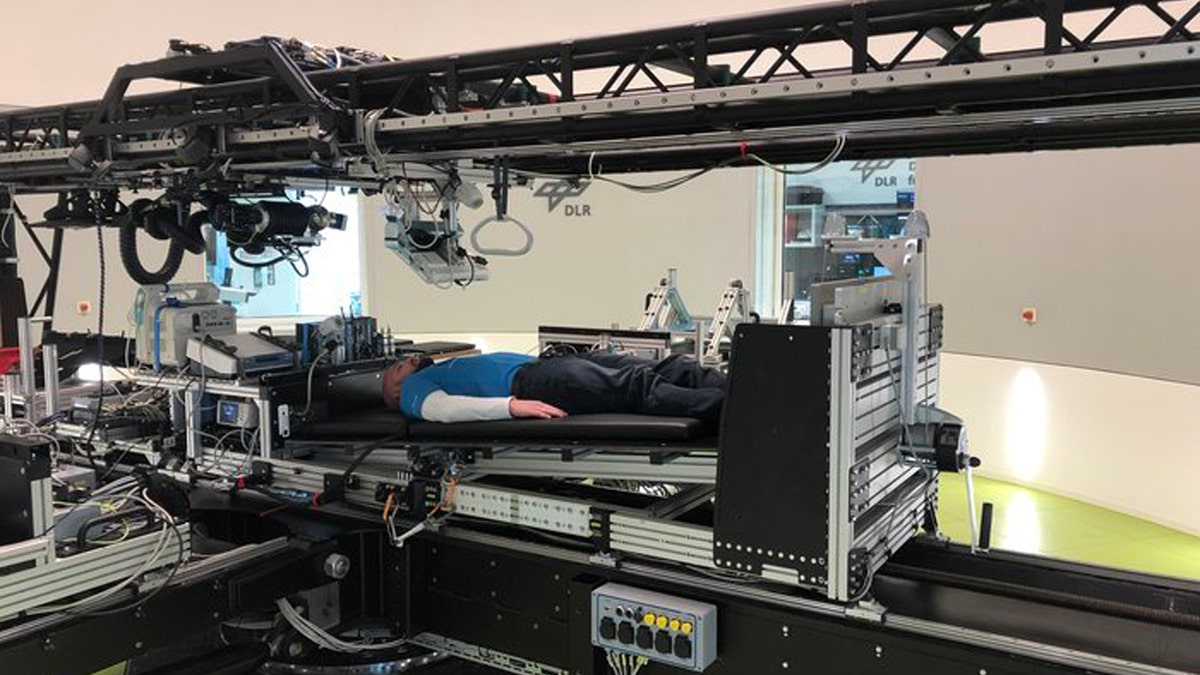
(Credit: ESA)
NASA has created the perfect job for anyone who really enjoys staying in bed all day, as long as they don't mind continuing to do just that for 60 days without a break.
As UPI reports, NASA and the European Space Agency (ESA), in conjunction with the German Aerospace Center (DLR), are undertaking an Artificial Gravity Bed Rest Study (AGBRESA).
The study hopes to figure out what effective countermeasures there are against bone and muscle atrophy when humans are placed in a weightless environment and how artificial gravity can have a positive impact. This is important for the astronauts who will eventually spend extended periods of time in space beyond the limited stays currently experienced aboard the International Space Station.
As part of the study, 12 male and 12 female volunteers will spend 60 days in bed in the :envihab facility at the DLR Institute of Aerospace Medicine in Cologne. Their full stay will actually be 89 days, with the remaining 19 days used as pre-test and recovery periods. In return for their time, each volunteer will receive $19,000 in compensation.
More From PCmag
While that may sound like easy money to make, the test is sure to be quite stressful and potentially unpleasant. As DLR explains, "All experiments, meals, and leisure pursuits will take place lying down during the bed-rest phase. The participants will be restricted in their movements, so that the strain on muscles, tendons and the skeletal system is reduced. The beds are angled downwards towards the head end by six degrees. This will simulate the displacement of bodily fluids experienced by astronauts in a microgravity environment."
According to Leticia Vega, Associate Chief Scientist for International Collaborations for NASA's Human Research Program, the restrictions placed on the volunteers produce effects that are "similar to what astronauts experience in space," which can then be combined with what's known from studying humans in the weightless environment aboard ISS.
This article originally appeared on PCMag.com.
